It looks like Heathrow Airport may actually require airlines to use their slots this winter if they want to keep them, which is either really bad or really good, depending on how you look at it.
In this post:
Heathrow slot restrictions have been relaxed
Many congested airports around the world are slot restricted, which means that airlines need slots in order to operate flights to & from them. Sometimes these slots are awarded on a merit basis, while other times they can be purchased and sold.
In the case of Heathrow it’s a mix of both — the slots have been granted to airlines over the years, though airlines can also sell these for big money. For example, back in 2016, Oman Air paid a record $75 million for a Heathrow slot pair.
The catch is that most slots come with a “use it or lose it clause.” That’s to say that if airlines don’t use their slots at least a certain percentage of the time (typically 80%) then they can lose the slots.
Understandably the pandemic has caused some major issues with that. Global demand for air travel is way down, which would have meant that airlines would have had to fly mostly empty planes to maintain their slots. As a result, Heathrow (and many other airports around the world) have waived slot requirements for the past several months.
In other words, airlines haven’t had to fear using their slots if they don’t operate enough flights.
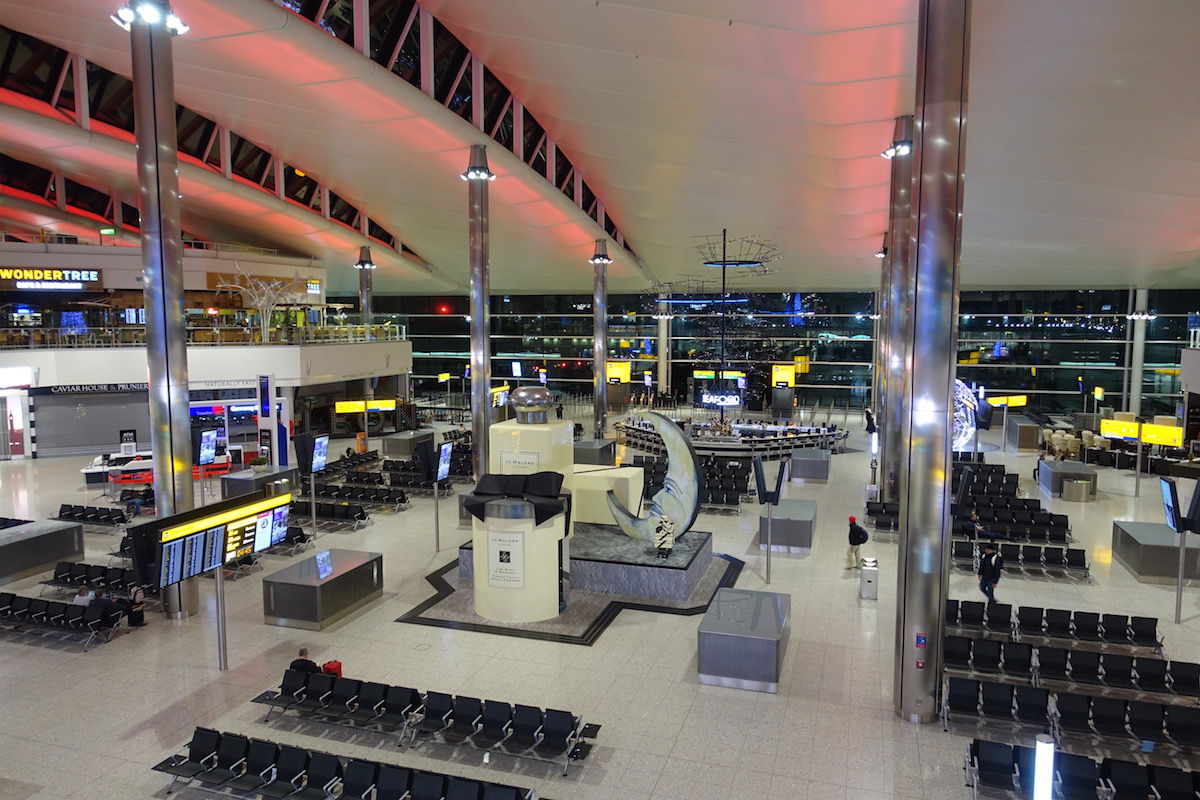 Heathrow Airport is currently waiving slot requirements
Heathrow Airport is currently waiving slot requirements
Full restrictions could kick in this winter
Airport Coordination Limited (ACL) manages slot allocations at UK airports, the largest and most slot restricted of which is Heathrow. The organization is making it clear that as of now there’s no plan to waive slot requirements for the winter 2020 season, which kicks in as of late October 2020.
That’s not to say that this couldn’t change, but it’s intended to give airlines all the information currently available as they plan their schedules. As was announced:
“Carriers will need to make their own assessment on the timing and likelihood of a waiver and determine their hand back strategy accordingly.”
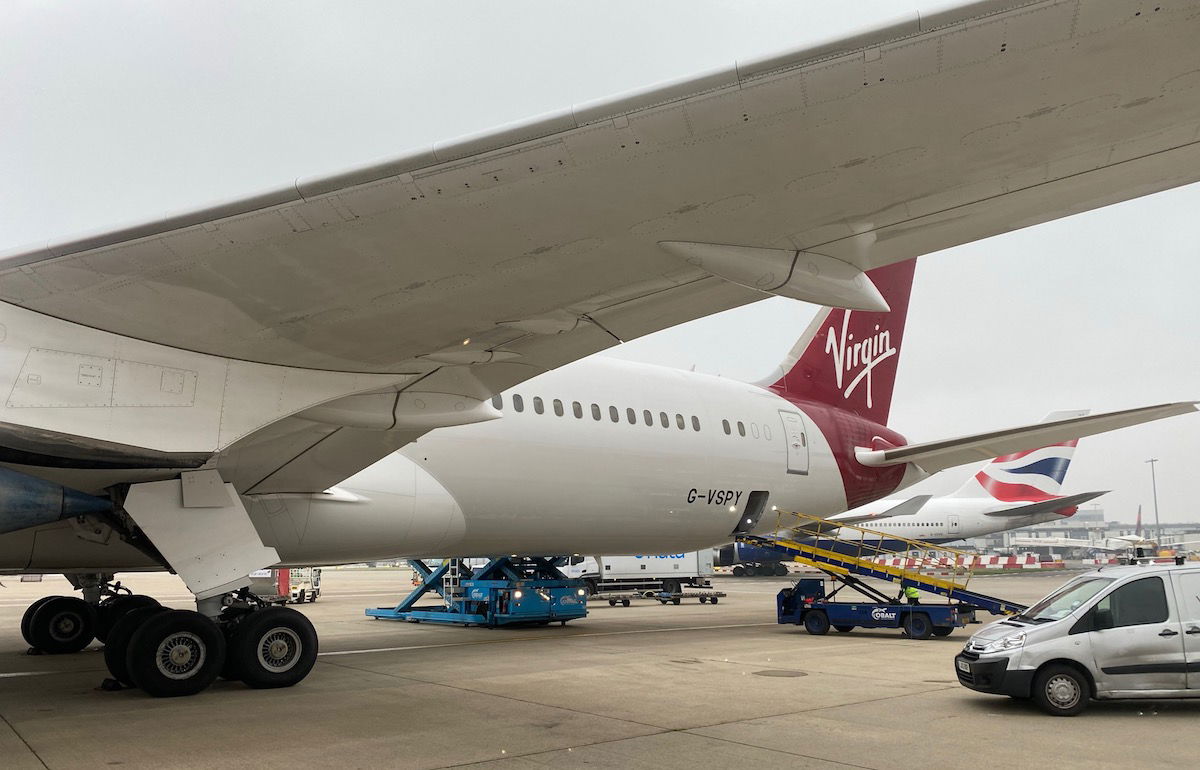 Airlines may have to use 80% of their Heathrow slots this winter
Airlines may have to use 80% of their Heathrow slots this winter
I’m conflicted on this…
I think there are two valid sides to this…
What would happen if the waiver wasn’t extended? We would probably see airlines operate “ghost” flights in order to maintain slots, which is a waste in every way, and terrible for the environment. In other words, British Airways may be shuttling planes all day between London Heathrow and London Gatwick in order to maintain its slots, without any passengers.
But then there’s the other side of the coin. If an airline wanted to start flights to Heathrow right now it couldn’t, because slots belong to other airlines, even if they’re not being used.
For example, JetBlue wants to start flying to London next year, but Heathrow probably isn’t in the cards due to lack of slots. Similarly, Wizz Air wants to break up the competition and start flying to Heathrow if there were slots available.
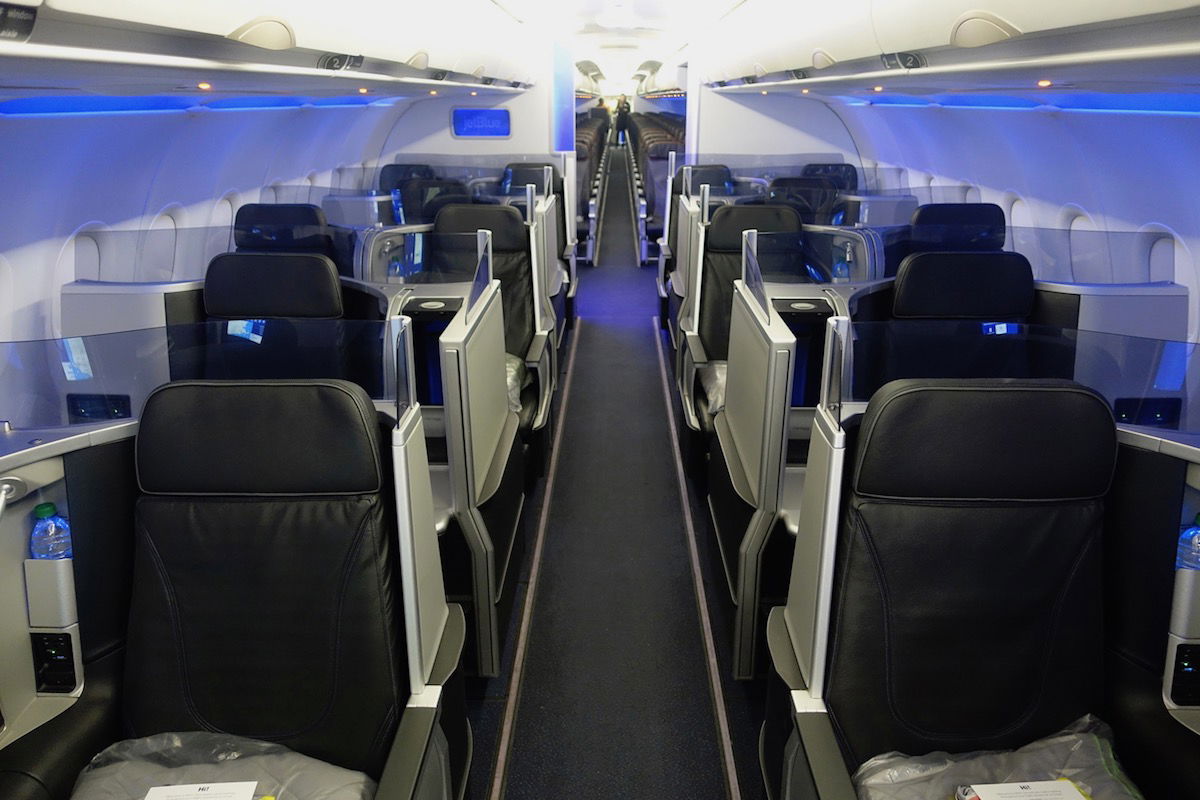 JetBlue wants to start flying to London in 2021
JetBlue wants to start flying to London in 2021
Is it logical to see British Airways holding onto slots it can’t use, while other airlines that want to add service can’t fly there? That doesn’t seem fair either, does it?
The unfortunate reality, though, is that it may be smaller airlines harmed by this, rather than British Airways. British Airways could shift all Gatwick flights to Heathrow, and IAG airlines (including Aer Lingus, Iberia, and Vueling) could increase flights to Heathrow, and British Airways would probably be fine.
The bigger issue would be for foreign airlines operating less frequent flights to London. If there are border restrictions preventing most people from traveling, should they just operate nearly empty flights to Heathrow, or what should be done?
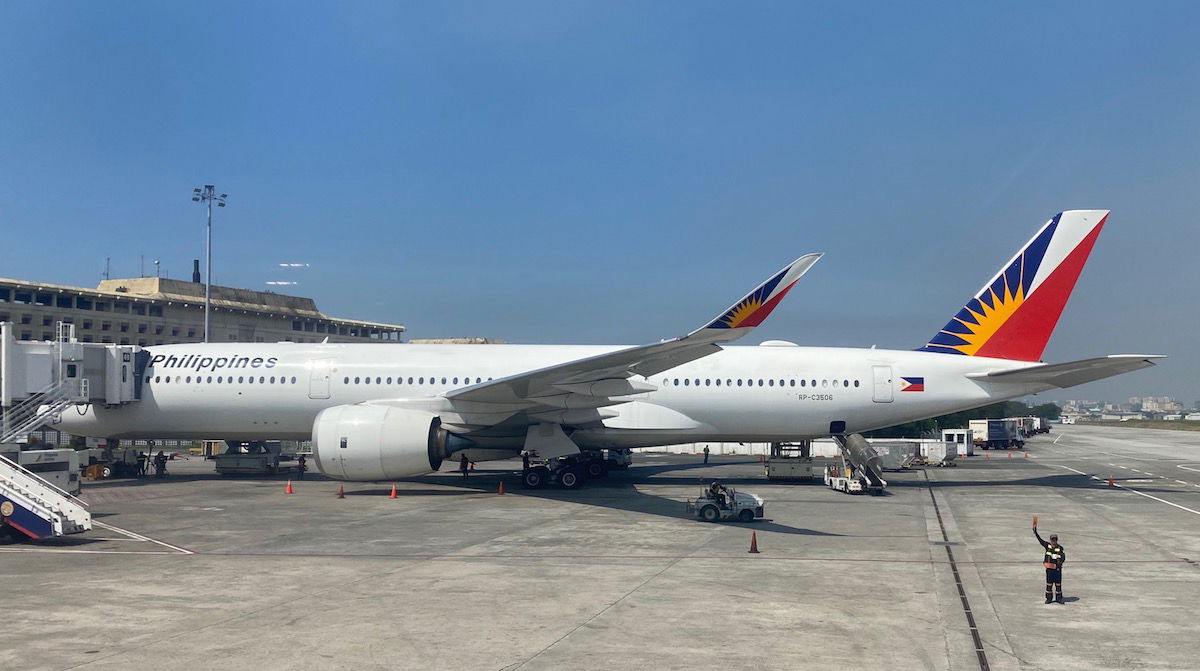 Philippine Airlines currently isn’t using all of its Heathrow slots
Philippine Airlines currently isn’t using all of its Heathrow slots
Bottom line
As of now UK airports plan to enforce slot requirements this winter, meaning airlines would have to use 80% of their slots or risk losing them.
Personally I think it’s highly likely the slot waiver will be extended, given that the alternative would be airlines operating a bunch of “ghost” flights.
Still, something about the system of allocating slots needs to change. Even though Heathrow is way under capacity at the moment, an airline couldn’t add flights because other airlines are just sitting on their slots without using them.
What do you make of the current Heathrow slot situation?
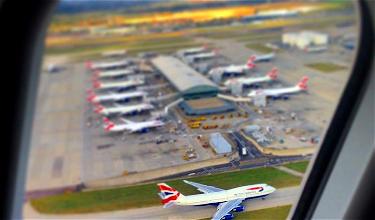


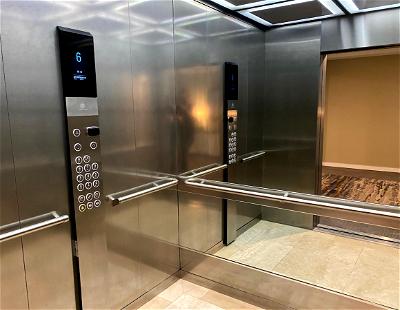
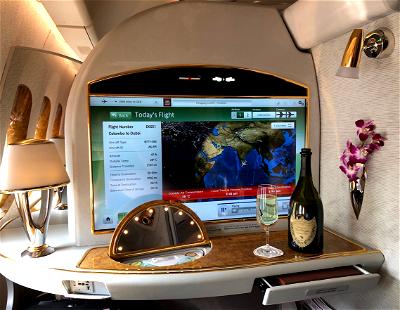
There wasn't a consensus between IATA, ACI and WWACG on how to handle W20 and issuance of waivers. Globally, Regulators were on a wait and see approach if the parties could work it out among themselves. They didn't, and now it's up to each regulator to issue guidelines. Until the UK decides how to handle it, ACL has no choice.
EU coordinators and airlines took a more collaborative approach with the EU regulators following...
There wasn't a consensus between IATA, ACI and WWACG on how to handle W20 and issuance of waivers. Globally, Regulators were on a wait and see approach if the parties could work it out among themselves. They didn't, and now it's up to each regulator to issue guidelines. Until the UK decides how to handle it, ACL has no choice.
EU coordinators and airlines took a more collaborative approach with the EU regulators following the recommendations agreed too.
US FAA still hasn't issued theirs yet, but this only impacts 4-5 airports anyway in the US.
So far you're seeing most Countries giving waivers but with conditions attached.
Why do people keep claiming that demand is down? It isn't. People want to travel. They are not allowed to due to government imposed restrictions (eg closed borders, travel bans, etc).
Demand isn't down. Government regulations are up.
@Scudder No, the airline owning the slots doesn't have to operate their own aircraft.
Qantas owns 4 slot pairs at LHR. Their schedule before the pandemic only used 2. The other 2 are leased to BA.
@ Phil Duncan
What a vindictive and flawed attitude to have! Two wrongs don't make a right.
Whilst I'm by no means a fan of BA's insensitive handling of their staff during the current industry crisis, any further damage done to the airline's operation would only exacerbate the situation and inevitably lead to even more redundancies!
LHR is my home airport.
I would welcome slot restrictions being reimposed in the winter season in the hope that it will damage the BA operation after all the damage BA has done to the local economy over recent months with redundancies and reduced terms of working for many thousands of staff.
What goes around comes around and the BA board have bad times coming to them.
I used to work for Qantas a fair few years ago. We used to contract a local charter airline to operate in and out of Heathrow with a BAE146 shuttling to Manchester and back to maintain service in the slots not being used, operating under a special Qantas flight number. Given the current circumstance whereby Qantas couldn’t even fly if it wanted to given it is illegal for Australians to travel out of Australia without...
I used to work for Qantas a fair few years ago. We used to contract a local charter airline to operate in and out of Heathrow with a BAE146 shuttling to Manchester and back to maintain service in the slots not being used, operating under a special Qantas flight number. Given the current circumstance whereby Qantas couldn’t even fly if it wanted to given it is illegal for Australians to travel out of Australia without approval, there will need to be a waiver or these ghost flights will return.
Can’t the airlines just park a plane in their slot and leave it there in between reduced turn arounds?
Reintroducing the rule will just benefit BA.
As said, those smaller airlines which fly long distances have less business case to merit resumption, and it would be highly inefficient. As a result they would have to give up their rights. And BA in return would be well placed to pay a premium to pick up the slots rather than someone with less need further afield. So it would be anti-competitive to reintroduce the requirement as it stands.
Make them have at least 10% of capacity of paying passengers on every flight to stop BA operating ghost flights
No airline is just going to give away their slots by not operating a ghost flight if it came to that. The value of the slot far exceeds the expense of a ghost flight. If an airline wanted to start service they would need to negotiate with a slot owner. There is really no upside to not extending the waiver until demand warrants it.
@Icarus
But there’s a long queue of other airlines desperate to get into Heathrow which is, effectively, full. Look at how much Oman paid for a single pair of Heathrow slots: they are worth serious money.
Why should an airline not using precious slots be able to prevent other airlines entering the Heathrow market?
If borders are closed , airlines can’t operate It would be completely ridiculous for the authority to say if you don’t use it , lose it , when they can’t
It may lead to airlines abandoning Heathrow , if other airports in Europe waive slot restrictions
Personally I think the best solution would be for Heathrow to ask airlines with existing slots to inform them of how many flights they’re planning to operate for the next reasonably long but temporary time period (say until next June). Then, any available slots between now and next June should be temporarily made available to new airlines that want to start service, with the understanding that those new airlines may not be able to continue...
Personally I think the best solution would be for Heathrow to ask airlines with existing slots to inform them of how many flights they’re planning to operate for the next reasonably long but temporary time period (say until next June). Then, any available slots between now and next June should be temporarily made available to new airlines that want to start service, with the understanding that those new airlines may not be able to continue service after next June if airlines with existing slots decide to use them come that time.
As a person with little knowledge in this stuff, my first thought is slot requirements is a bad thing for consumers but maybe a good thing for the airport. Almost reminds me of NYC and taxi cab medallions. Creates a monopoly and prevents innovation/competition (until Uber/Lyft) came about.
@TT it’s difficult to come up with a commercial rule like that and at the end of the day an airline should be free to make its own decision on what routes are in demand.
To your example - maybe there are flights which go out empty <25% but come back full like at the end of an event in a remote city.
On distance some short flights are commercially viable and even if you...
@TT it’s difficult to come up with a commercial rule like that and at the end of the day an airline should be free to make its own decision on what routes are in demand.
To your example - maybe there are flights which go out empty <25% but come back full like at the end of an event in a remote city.
On distance some short flights are commercially viable and even if you applied a minimum distance rule, the airlines would just fly empty to somewhere beyond it.
Fees per plane instead of per pax, indeed might help. Or an extra runway to open up new slots to allow competition to regulate it all more naturally... until the new slots would be gone again that is
Do the slots have to be flown on the company’s metal? Or could an international airline contract with a local operator of piston singles to fly the slots?
The issue won't be for BA as Ben states, plus even if they enforced it and prevented the LGW option, BA would increase short-haul flights to/from Madrid, Dublin, Manchester etc. Other short-haul airlines would also likely take advantage (KLM, Air France, Lufthansa). The losers will be long-haul airlines like Virgin, Qantas, South African, Emirates etc., as all their flights are long haul, the cost to operate them is significant, and that demand isn't coming back...
The issue won't be for BA as Ben states, plus even if they enforced it and prevented the LGW option, BA would increase short-haul flights to/from Madrid, Dublin, Manchester etc. Other short-haul airlines would also likely take advantage (KLM, Air France, Lufthansa). The losers will be long-haul airlines like Virgin, Qantas, South African, Emirates etc., as all their flights are long haul, the cost to operate them is significant, and that demand isn't coming back soon
Noted elsewhere on this blog — airlines are starting to add new routes, not always simply reinstating old ones.
BA has made a fortune from its grandparented rights at Heathrow, but at the expense of locking out competition and the innovation that might go with that. So BA and its JV partners block their slots with medium-sized planes flying multiple times a day to the same cities (in the case of NYLON flights, we...
Noted elsewhere on this blog — airlines are starting to add new routes, not always simply reinstating old ones.
BA has made a fortune from its grandparented rights at Heathrow, but at the expense of locking out competition and the innovation that might go with that. So BA and its JV partners block their slots with medium-sized planes flying multiple times a day to the same cities (in the case of NYLON flights, we have around two dozen departures a day, many leaving at roughly the same time — including a pair of flights scheduled to depart within 10 minutes of each other).
This is simple slot-blocking, to protect BA’s near-monopoly and to lock out competitors. It is certainly not in the public interest.
If BA wants to maintain capacity, it could instead take a few of its A380s out of storage and operate those instead of some of the multiple smaller jets. That would free up slots for more competition. Unsurprisingly, BA doesn’t want that.
Enough of the gravy train. I’d reinstate the “use it or lose it” rules; and at the same time I’d change landing charges and airport taxes so they’re calculated per plane rather than per passenger. If BA wants to screw the environment to conserve slots then it should be charged full cost, rather than treating pollution as an externality which is free.
Why dont they require flights to be counted only if they have 25% plus occupancy?
@Steven_CC
This is more akin to someone living in dormitary where they also provide other services. They're going to be kicked otu despite paying rent because they're only living in the house for 4 days of the week..
On the point, I'd assume they'll extend it at some point. It would be a huge waste otherwise to have empty planes flying when there isn't demand.
This is NOT an airport decision to make.
It's a regulatory decision to be made by governments (or their appointed regulators / international bodies they have delegated the powers to)
You even state in your previous linked to article that for the US it's the the FAA who made the suspension of the slot use rules not individual airports and for the EU it was the EU Commission.
ACL (who only manage the slots...
This is NOT an airport decision to make.
It's a regulatory decision to be made by governments (or their appointed regulators / international bodies they have delegated the powers to)
You even state in your previous linked to article that for the US it's the the FAA who made the suspension of the slot use rules not individual airports and for the EU it was the EU Commission.
ACL (who only manage the slots on behalf of the airports that contract them to) is simply advising that until the regulators tell them otherwise (that the rule is suspended for the winter season for example) that they (ACL) will be implementing the 80/20 use/lose rules.
Not sure how this is different than a restaurant or apartment kicking people out if they dont pay rent, the airport wouldnt be doing this if they felt there wouldnt be new buyers for the slots. So pay the rent or leave and we will get someone else who will pay the rent. Pretty simple really.
How idiotic. I’m sure they’ll extend it eventually.